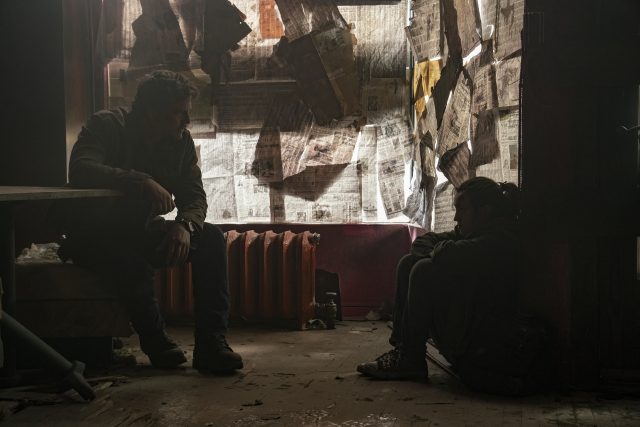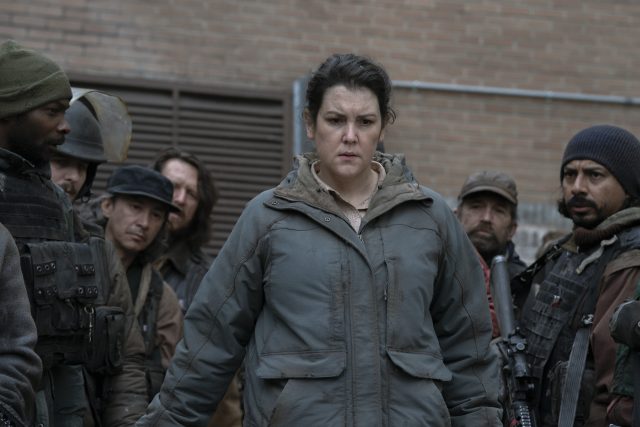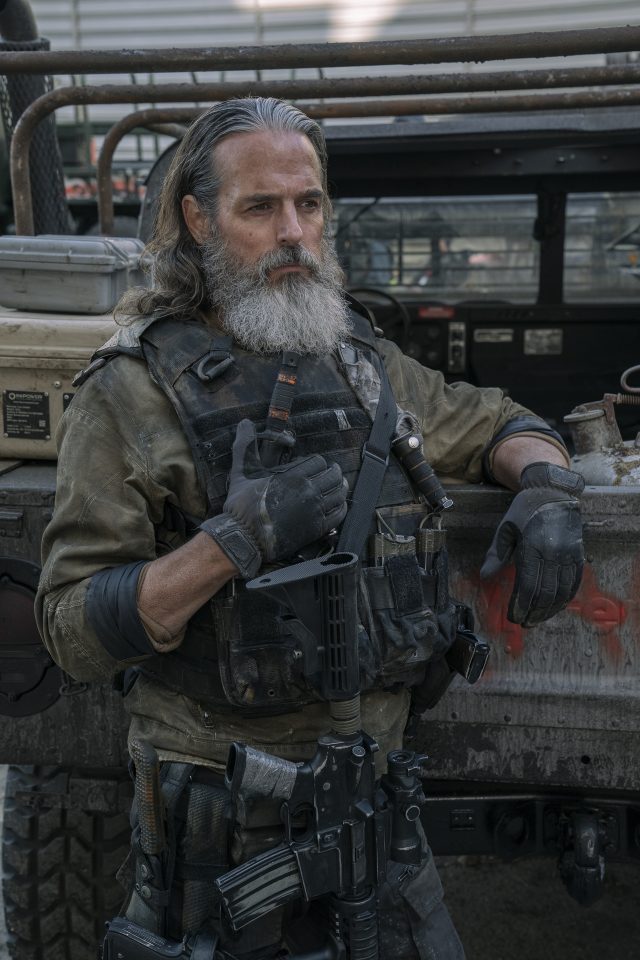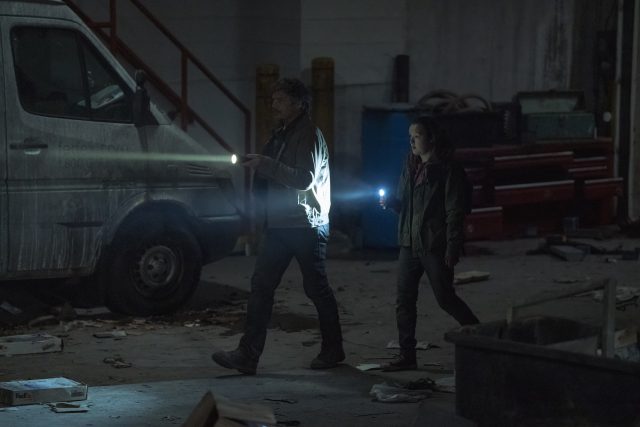Hell is other humans in HBO’s The Last of Us episode 4
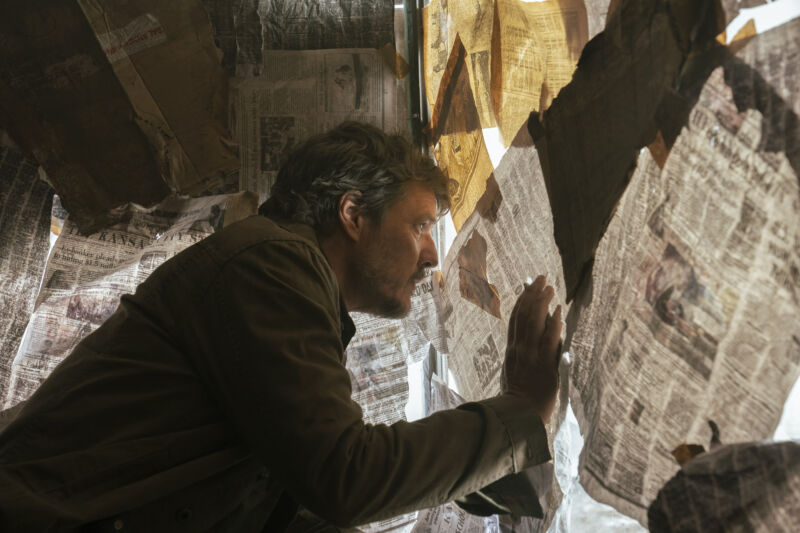
Enlarge / Not the most efficient way to read the news, but at least he's reading...
New episodes of The Last of Us are premiering on HBO every Sunday night, and Ars' Kyle Orland (who has played the games) and Andrew Cunningham (who hasn't) will be talking about them here every Monday morning. While these recaps don't delve into every single plot point of the episodes, there are obviously heavy spoilers contained within, so go watch the episode first if you want to go in fresh.
Kyle: There are at least one or two more plot and/or format curves, even if they just stick to the games. (and that's all the cryptic clues I'm giving)
Speaking of episode whiplash, I think this was the first episode where we really got a good look at Ellie's constant transitions between young teen goofball and potty-mouthed action-hero sidekick. It was an incredibly effective combination in the games and so far I think it's working in this new context as well.
Kyle: I was not a dad when I played the first game, and now that I am, I'll just say that the obvious attempts to bring out Joel's paternal instincts work very well.
I was also a little tickled by the show's attempts to mirror the game's constant situations where Ellie is small enough to squeeze through somewhere to safety to unblock a door with a heavy thing in front of it (or climb up to lower a ladder down or something, which we haven't really seen in the show yet).
In the game, these moments really strengthen the player's bond with what could otherwise just be an annoying, quippy escort mission objective. Here, these moments fell a little flatter.
But yes, the jokebook puns are just as effective as ever!
Andrew: By the time she squeezes through her second or third convenient window or hole in the wall, yes, it does start to strain credulity a bit. Absent a gameplay reason to bond with Ellie, the show has to lean harder on the emotional beats, which, thankfully, it does pretty well.
The “bad jokes” running gag is inspired; the “bonding over past and present trauma” bits are more predictable but still serviceable. You can see the turning point of their relationship coming from 10 miles away—Joel will tell Ellie about his daughter, Ellie will share whatever she’s hiding about the first time she had to kill someone, and after that, they will be bonded for life—but it doesn’t mean I’m not eager to see these actors play out that conversation.
In fact, at this point, if I did try to play the game I would probably be frustrated that Pedro Pascal and Bella Ramsey weren’t in it.
Andrew: So when Joel and Ellie find unfriendly humans instead of a shortcut in Kansas City, I liked the very game-like way the people there had helpfully spray-painted things like “We The People” and “RUN” in two-foot-high letters on their trucks to tell the audience what to think about them.
The woman leading these people, Kathleen, seems like what you would get if you put "Woman Who Wants to Speak to Your Manager" in charge of your vigilante band. You said that we’re following the emotional arc of the game pretty closely in this one, how close are we to the game’s actual events?
Kyle: I can't say too much, both because there actually is a Henry in the games and because, after episode 3 and the introduction of new characters here, I really don't know if my knowledge of him means much of anything.
That's one thing that I think makes the show work so well: it's committed to the feel of the games but not so committed to the structure that it becomes just dull and predictable if you've played them...
Andrew: And as a non-game-player who does have a pretty firm grasp on narrative tropes, the show has surprised me already and it seems likely to surprise me again, based on your subtle-ish hints. It does seem like it’s a little more fun at this point to have no idea what happens, though, because I don’t know anything about who named characters are “supposed” to be.
For Kathleen’s part, I’m gonna go out on a limb and suggest that ignoring the cordyceps zombies in that basement hole (that's what that was, right?) in favor of chasing down humans seems pretty likely to backfire.
Andrew: Definitely. Since otherwise, I think this is our first (possibly only? who can say!) totally Infected-free episode.
Read on Ars Technica | Comments
from Gaming & Culture – Ars Technica https://ift.tt/QZMb67K
